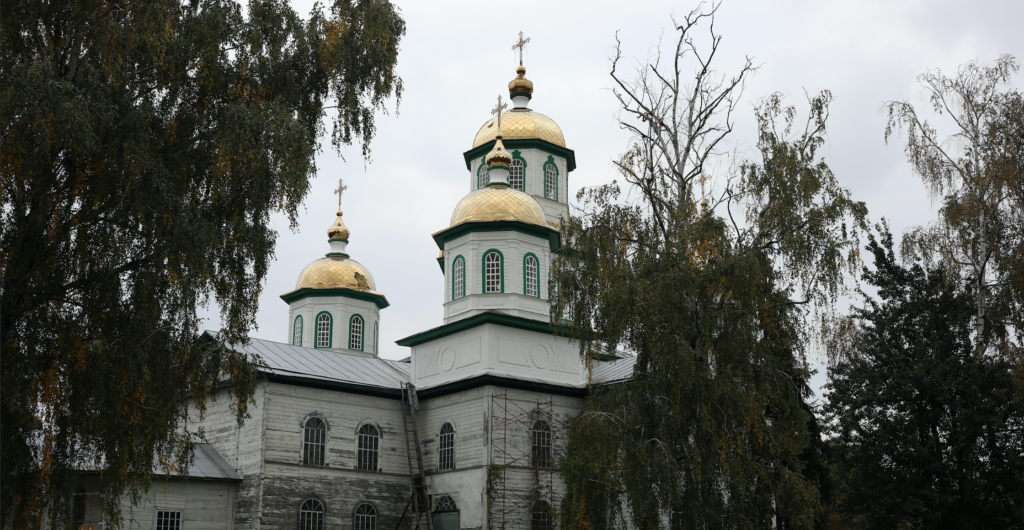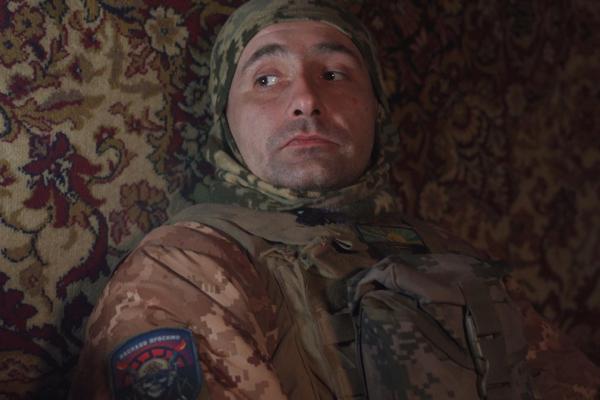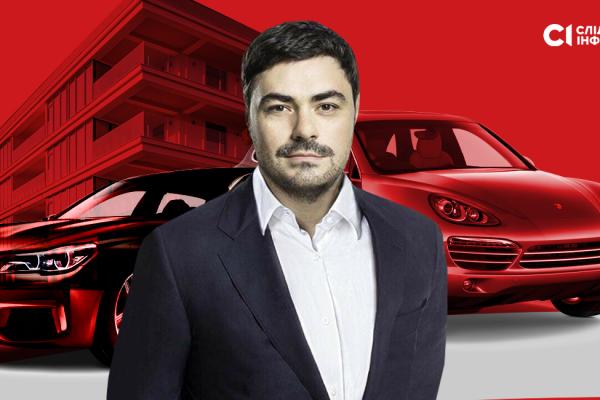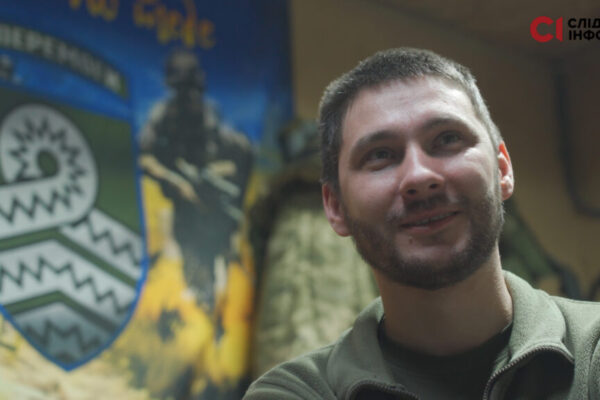The road from Kyiv to Deptivka, which is located almost on the border of Chernihiv and Sumy oblasts, turned out to be difficult. Part of the way is broken field roads, which were once used by agricultural machinery. Some of them are forest roads, which in dry weather can be used only by an off-road vehicle. In rainy weather, this road turns into swamps.
It has been six months since Deptivka was liberated from occupation, but only one road to Konotop has been repaired. Locals say that these roads were left behind by the Russian occupiers who entered the village in late February. They recount how the Russians drove in “couplings” with heavy equipment through the surrounding forests, from which the road to Chernihiv region runs.
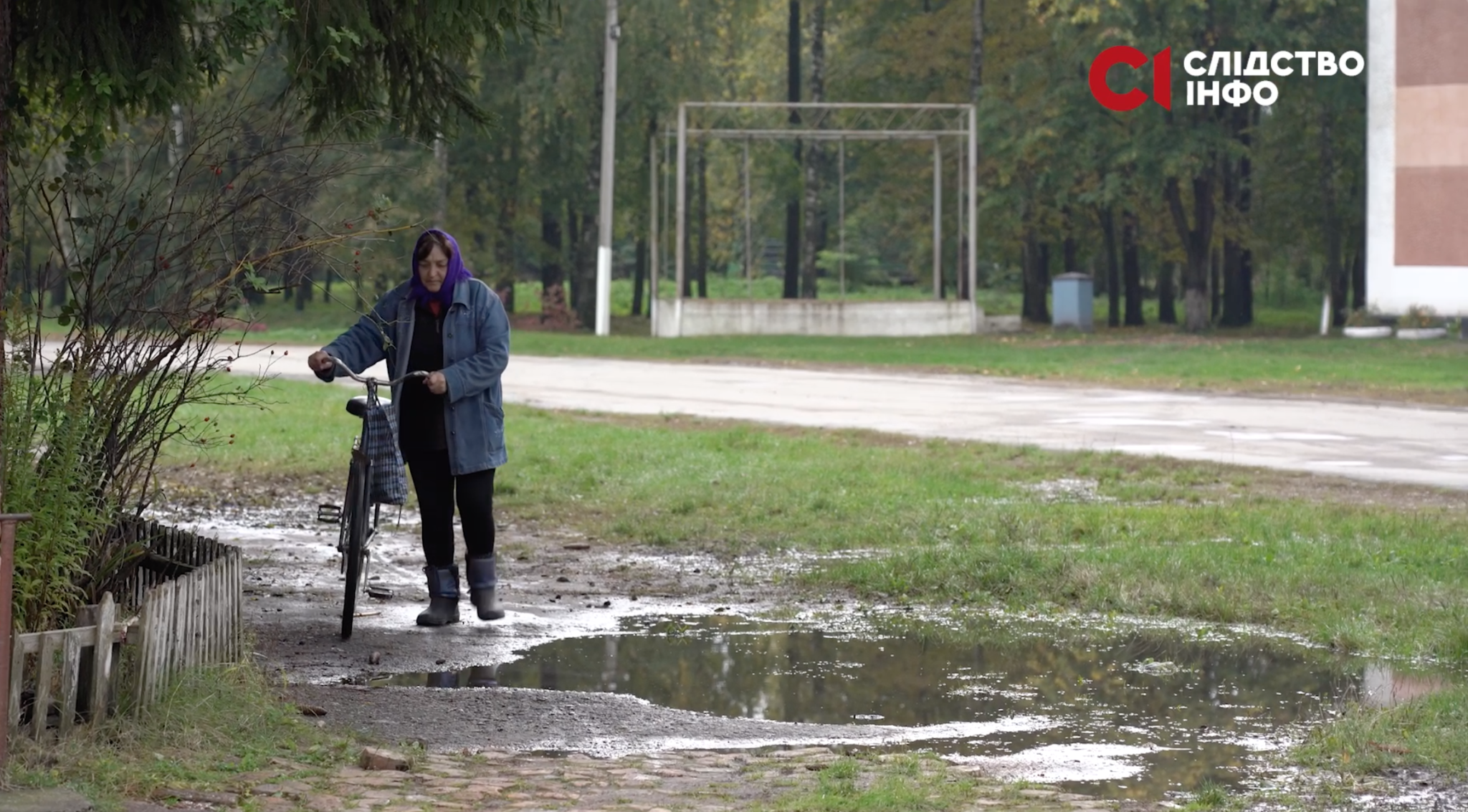
After rain, roads around Deptivka in Sumy region turn into swamps
‘Slidstvo.info’ journalists visited Deptivka to learn more about the local priest, who was detained in early August on suspicion of collaborating with the occupiers and propagating the ideas of the “Russian world”. However, it was not an easy task to talk to local residents – many are afraid of revenge from the priest. People in Deptivka are much more willing to talk about the crimes of the Russian military.
“I AM A CHURCH MAN”
The National Police reported that the priest of the Russian Patriarchate “propagated hostile ideology, justified the actions of the aggressor country in Ukraine and supported the occupation of its territories.” In addition, he helped the enemy army in every possible way, giving it material resources (according to the locals – food and fuel – ed.).
Later, ‘Slidstvo.info’ managed to identify him – it was Father Oleksandr Boyko, who served in the Deptivka church. The man had previously had problems with the law, in particular, because of theft and illegal logging.
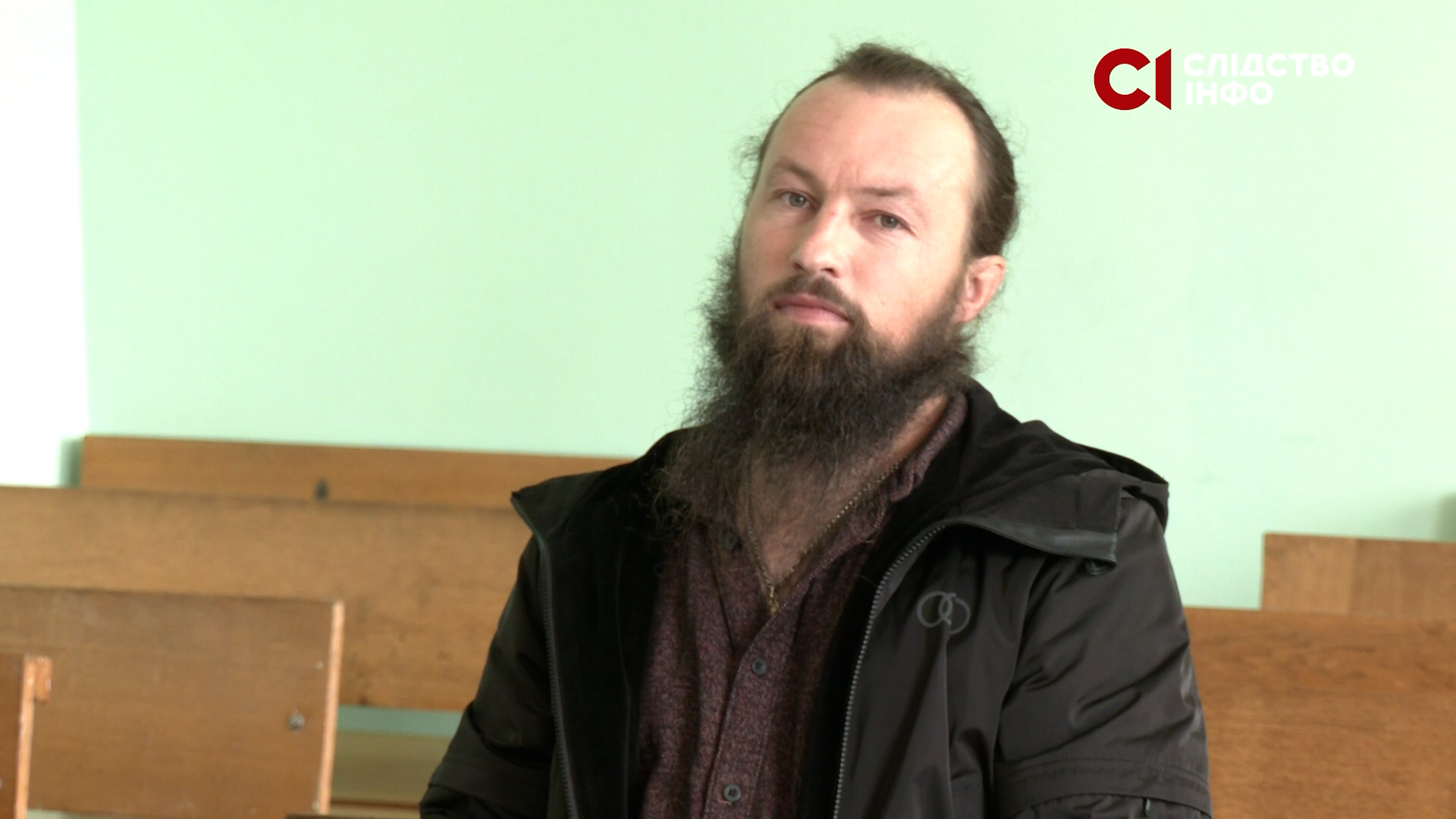
Father Oleksandr Boyko did not want to talk to journalists about the allegations against him
On September 20, the Konotop City District Court was to hold a hearing in the case of Father Boyko, but in the end, it was postponed. Both prosecutors, in this case, did not show up for the hearing – one because of vacation, and the judge did not specify the reason for the absence of the other. Oleksandr Boyko came to the hearing with his lawyer. However, he did not want to talk to journalists – he said that he heard about the accusation of collaborationism for the first time.
“I am a church man,” the priest replied and left, advising us to contact his lawyer. However, the lawyer also did not want to talk about the case.
People in the village where his parish was located are not very willing to talk about Father Oleksandr. We ask the saleswoman of one of the local shops if there are any parishioners who could tell us about the father. She advises us to ask a woman who works in a shop around the corner, who used to go to church and may know what happened to the church in Deptivka during the occupation. However, as soon as we ask about the story with the priest, the shop assistant refuses to talk and demonstratively turns away, moving the goods on the shelves.
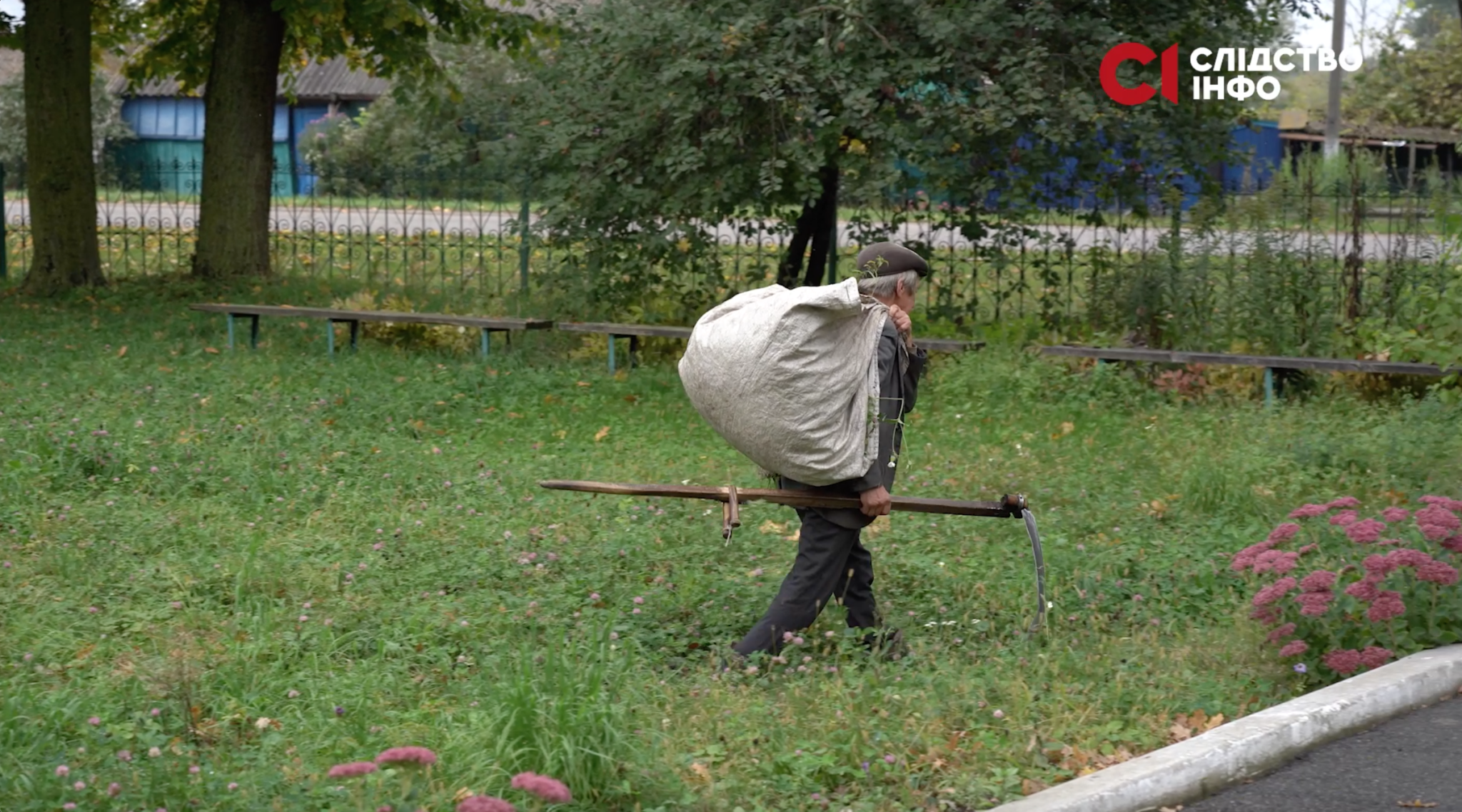
In the courtyard of the church in Deptivka, only a maintenance worker is working, while the church itself is locked and empty
We are heading to the Church of the Nativity of the Virgin Mary. The old wooden building does not look very neat, and the Russian occupiers left their traces nearby – holes from enemy bullets are still visible on the sign with information about the church. Only an elderly man mowing the grass is working near the church.
Locals say that now another priest has been appointed here, who comes to the service from a neighboring village. He is called mostly on holidays, the rest of the time the church is empty and closed. People here speak positively about the new “priest” – in his sermons he mentions Ukrainian soldiers, helps the military and generally has a pro-Ukrainian position.
“WHY WAS HE KILLED BY RUSSIANS? WE DO NOT KNOW”
In the house opposite the church, two older women in colorful scarves and warm jackets are sitting on a bench. One of them is holding a kitten behind her bosom. The cat Masha is a child of war, born after the occupation, and now she is cuddling with her owner. Mrs. Tetiana’s house, in whose arms her pet is sleeping, was also affected during the occupation – one day the occupiers started shooting, so they damaged the walls of the house and the slate on the roof. “They were shooting either from automatic rifles or machine guns. We covered the holes in the walls with tape and the slate with foam,” the woman says.
She recalls that the Russians were shooting so hard that it was scary to leave the yard. On the outskirts of the village, where almost no one lives anymore, the occupants burned houses. One of the local residents was shot dead – 32-year-old Volodymyr was on his way home when the Russians met him. Although the man managed to raise his hands, he got scared and started running. Then the occupiers shot him. Local women say that the killed man helped everyone, was peaceful and never offended anyone. “Why did the Russians kill him? We do not know”, one of them sighs.
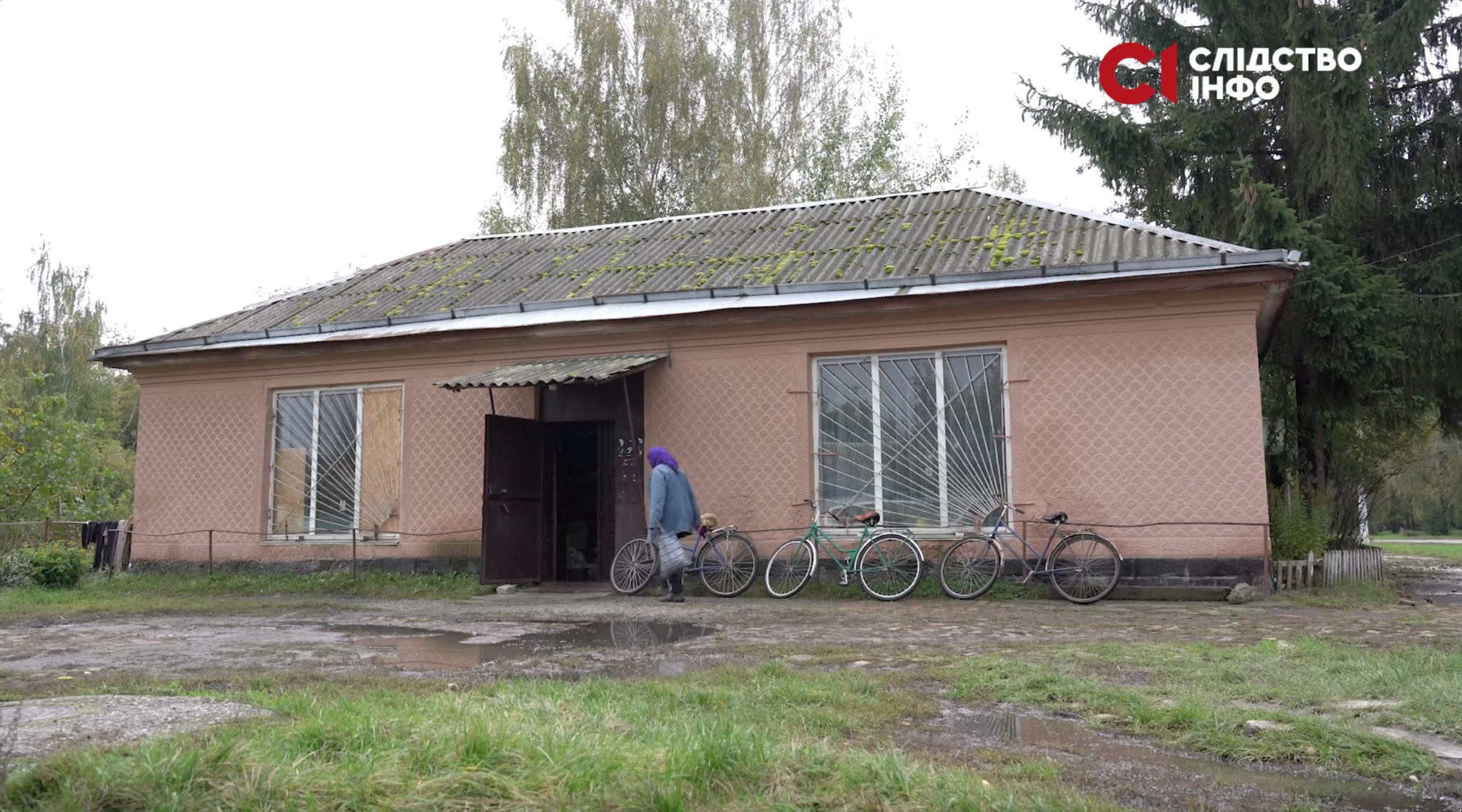
In one of the local shops, a church member in Deptivka refused to talk about the father who is accused of collaborationism
In addition to Tetiana’s house, the occupiers also shot at the local church that day. “These are godless people, nothing is sacred to them. Although we do not go to church, we respect the temple,” she sighs. When we start asking about Father Oleksandr, he refuses to speak on the record – saying that she doesn’t want unnecessary popularity.
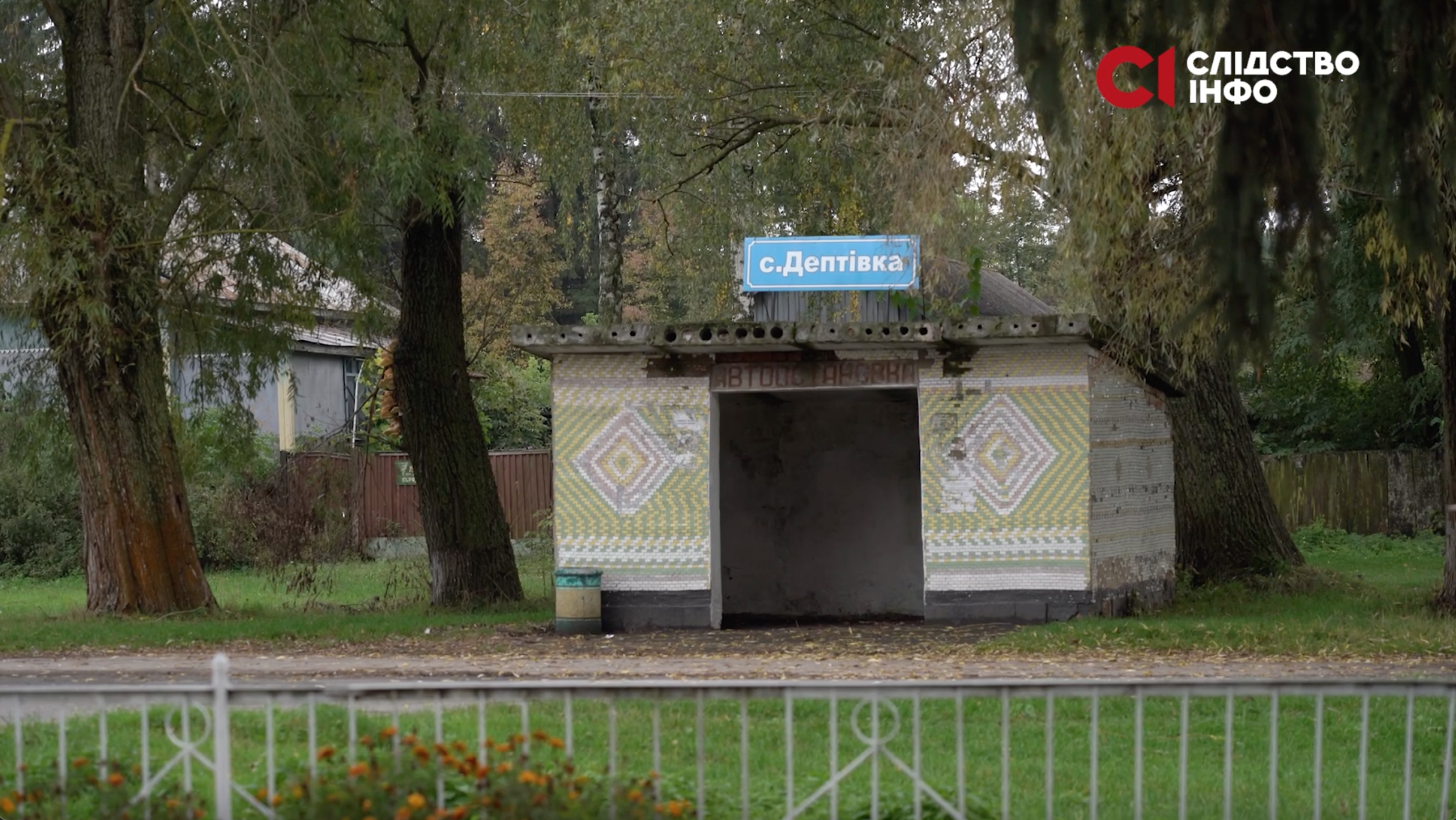
In Deptivka, Sumy region, the locals were not too eager to talk about their former pastor
However, her interlocutor, who asked not to be named, says that the father has never been pro-Ukrainian. “I heard from those who went to church that even before the great war he often mentioned that Russia was our great friend. And when the war began, even more so – he was persuading not to resist and accept everything as it is,” the woman says. And she says that he fed the occupiers in the baptismal chapel in the church and could even provide them with shelter. “They were constantly hanging around here, it was scary to go outside,” she recalls.
“HE IS A PRIEST, IT IS NOT FOR ME TO JUDGE HIM”
Several other residents of Deptivka, who have just heard questions about the priest suspected of collaboration, also refuse to speak. “He is a priest, it is not for me to judge him,” says one of them, turning away and walking away.
However, one of the women advises asking a local entrepreneur who owns cattle, and poultry and has a small fleet of agricultural machinery. She went to the prosecutor’s office for interrogations about the occupation of the village, because she did not leave Deptivka even on the most difficult days.
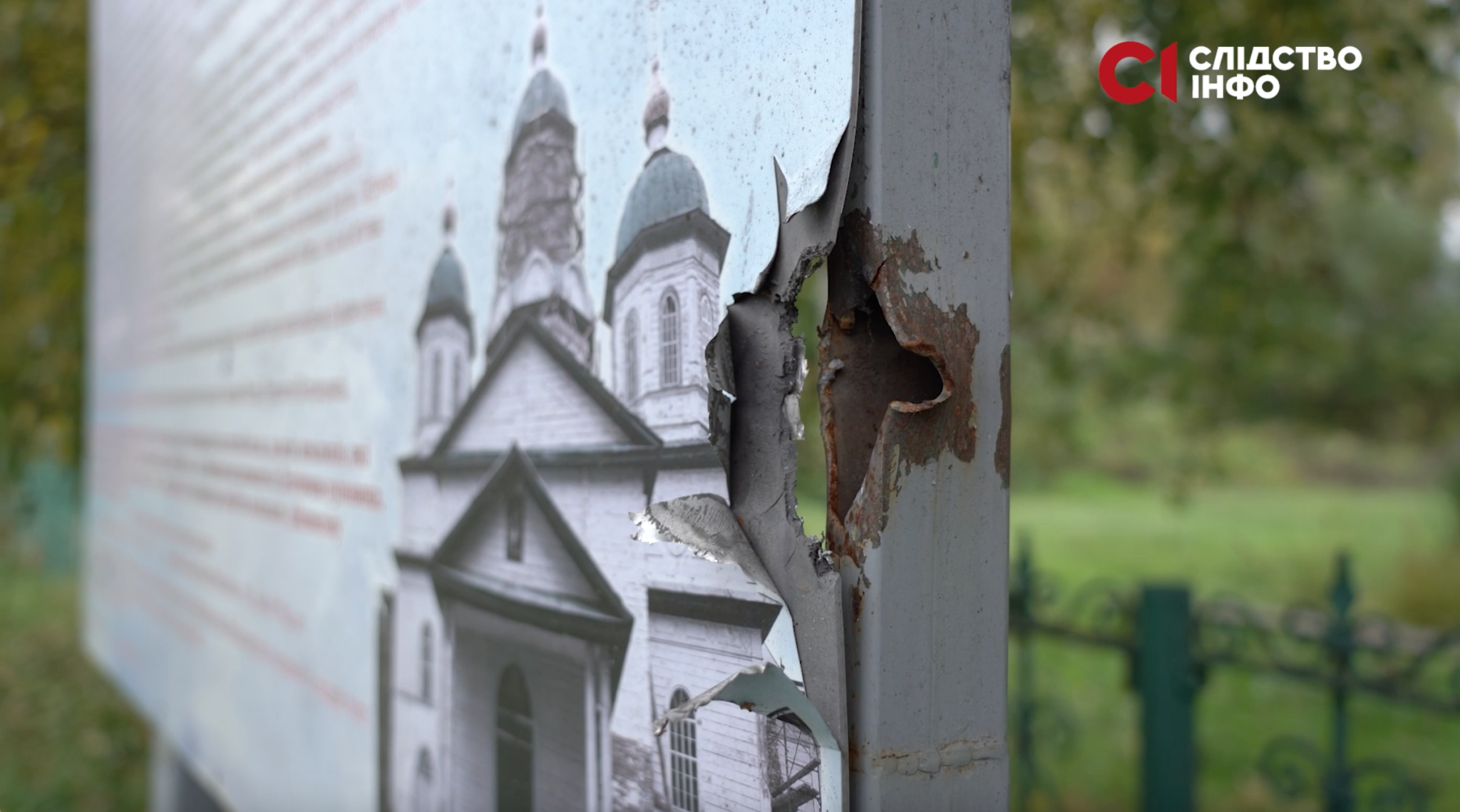
Russians opened fire in Deptivka and did not even spare the local church
The house of entrepreneur Kateryna is noticeable at once: there are a lot of combines in the yard, and men are working in the garage nearby – they are repairing the engine of a white minibus. At our request, they call the owner. Kateryna says that the Russians damaged the buildings of the complex a little, but gradually the workers are replacing the windows and restoring the consequences of the invasion. She also mostly keeps silent about Father Oleksandr and turns aside. “What can I say about him? It is better to say nothing,” the woman adds.
But men on the territory are more talkative. They say that the local “priest” had a criminal past. “Allegedly, in prison, he had the nickname “felt-tip pen”. How he could be ordained a priest after such adventures is a mystery,” one of them says. They say that he still seems to have ties with criminal circles – when last year the father was detained for illegal logging, he quickly resolved the issue and got off with a fine.
“BULLETS ARE FLYING, AND WE ARE LYING THERE AND PRAYING”
Finally, after long wandering around the village, we find a woman who agrees to tell us about Father Oleksandr. Maria is the wife of a local sexton who served in the church with Father. She comes out to us in a bright green headscarf and apologizes for not dressing up.
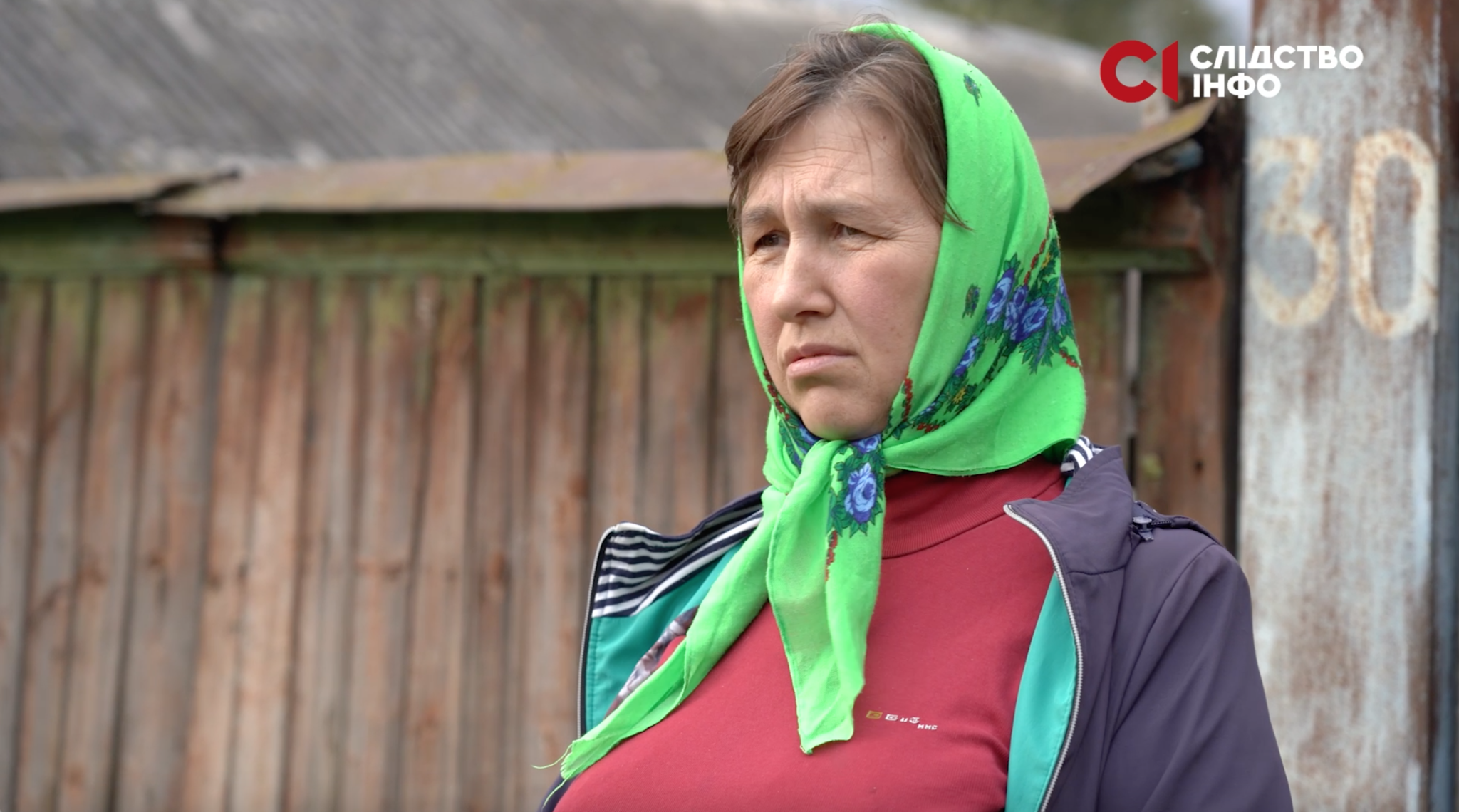
Maria, the wife of the sexton who serves in the Deptivka church, agreed to tell us about the priest
Their house is located on the outskirts of the village, near the entrance to Deptivka, so the family felt all the “charms” of the occupation. Although the house was not damaged, Russian tanks and equipment drove by. “We heard the tanks, they roared so much, it was horrible,” she recalls. She says that sometimes columns of Russian vehicles were accompanied by planes and helicopters.
Maria says that at first the Russian military entered the village and did not hurt anyone. They arranged a stronghold in one of the abandoned houses at the entrance, stretched mattresses there, and made a position for snipers. “We were afraid that our military could come here, and this would be the only way,” the woman said.
However, it seems that when the rotation took place, the other occupants did not behave so meekly. “Bullets were flying so that we did not even enter the house. We fled to the field and hid in the swamp. The bullets are flying, and we are lying there and praying that it will end soon,” the woman says.
“THERE IS NO TRUTH”
Maria says that the whole village united against the occupiers – people helped each other with food or just with household chores. And since there was a connection in the village, albeit a poor one, they passed on to their fellow villager’s information about the movements of the Russian military in the village in order not to fall under enemy fire. “People were hiding, because they had already reported that tanks were coming. The Russians were shooting at whomever they saw,” she says.
But it seems that this did not concern Father Oleksandr. The woman says that he accompanied the Russians in his car along the paths around the village. And even before the full-scale invasion, he had a pro-Russian position. “We must love Russia. Without Russia we are nothing,” Maria quoted one of his sermons.
According to her, when Russian soldiers came to the village, Father Boyko said that “Russian Ivan came, and he will take all the Nazis and the Bandera followers out of here, put everyone in their place.” “And my husband said: where are the Nazis and the Bandera followers? Father, what are you talking about,” Maria recalls and sighs.
We ask how her husband, who worked with the priest, treated the openly pro-Russian position of the father. “He had a bad attitude,” Maria says gloomily and says that prosecutors have already visited them and questioned them for many hours about Father Boyko’s activities. “I don’t want to talk much, because it’s all in vain. He walks and laughs, and nothing will happen to him,” she says. And she adds: “We are already afraid that his friends will come and who knows what will happen,” – she says and swallows a little nervously.
The next hearing was scheduled for October 17, but it seems that the residents of Deptivka, where Father Oleksandr’s parish used to be, do not really believe that he will be punished. “If the prosecutors did not show up for the trial, what can we talk about?” asks Maria, and says that no one from the villagers will go to the trial. “There is no truth,” the woman sighs.
The video has English subtitles.
